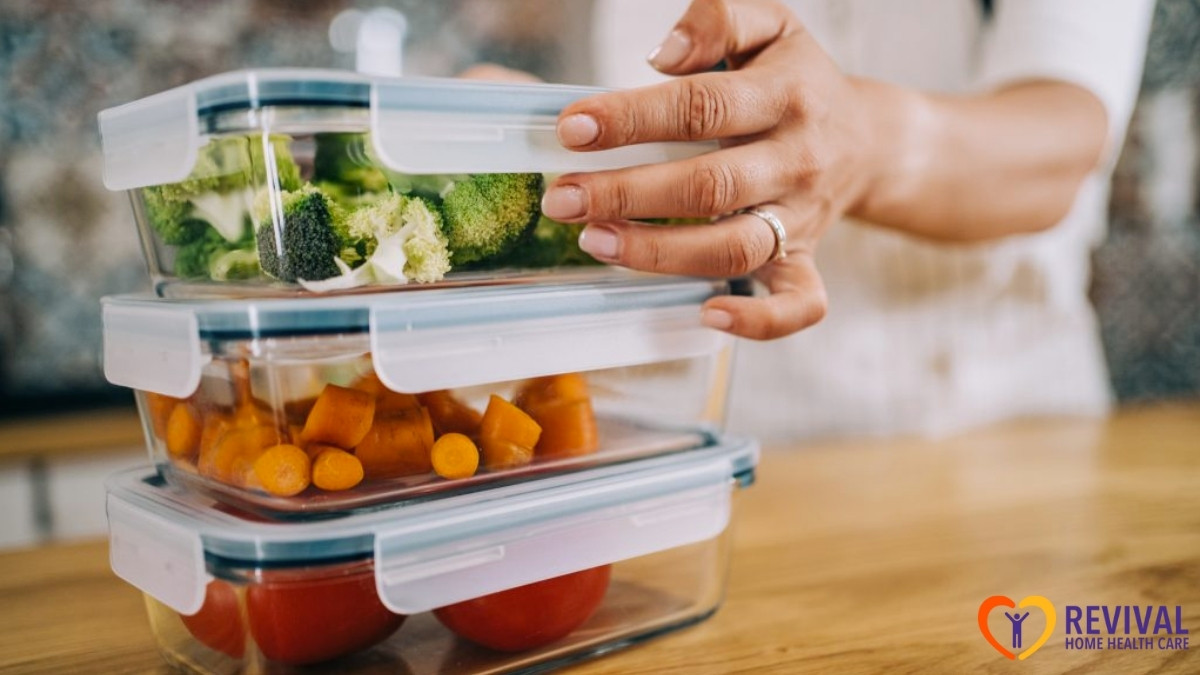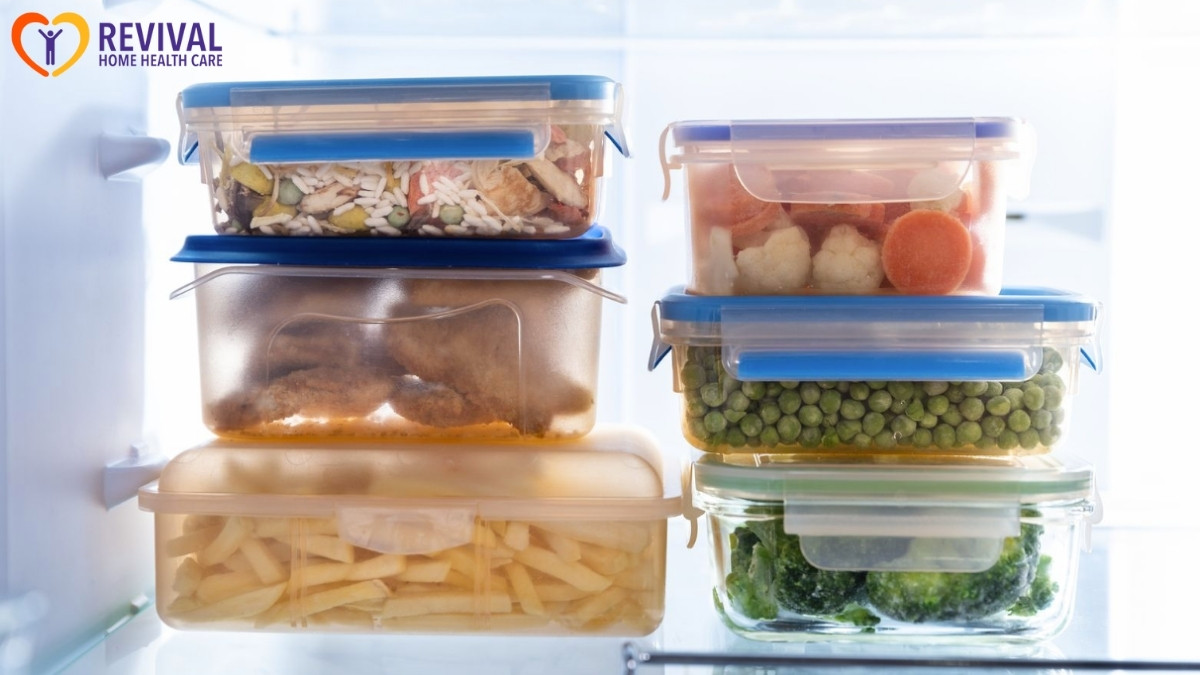Key Points:
- Understanding how your diet affects your recovery and ostomy health can make healing at home more comfortable and less stressful.
- Small, gradual dietary changes and keeping track of your body’s reactions help prevent discomfort like gas, bloating, and blockages.
- Planning meals, staying hydrated, and seeking support can make living with an ostomy at home much more manageable.
Why Nutrition Matters After Ostomy Surgery
Recovering at home with an ostomy isn’t just about letting your body heal from surgery — it’s also about learning how your digestive system works in its new way. What you eat directly impacts your output, hydration, energy levels, and comfort.
Eating appropriately can help you avoid complications like blockages, dehydration, and unpleasant odors. It can also boost your confidence and help you feel more in control during this transitional time.

Start Slow: Easing Into Eating After Surgery
Right after surgery, your digestive system may still be tender and adjusting. Most doctors recommend starting with low-fiber, soft, and easily digestible foods to give your gut time to settle.
Suggested Foods for the Early Recovery Phase
Focus on foods like:
- White rice, plain pasta, mashed potatoes
- Cooked (not raw) vegetables like carrots or squash
- Lean proteins like chicken, fish, or eggs
- White bread or toast
- Bananas, applesauce, or canned peaches
These foods tend to produce less gas and are gentle on your system. You can gradually introduce more variety as your recovery progresses.
Avoid These Early On
During the first few weeks, it’s wise to avoid high-fiber, hard-to-digest foods such as:
- Raw vegetables and salads
- Nuts, seeds, and popcorn
- Tough meats or fried foods
- Carbonated beverages (to minimize gas)
Take note: everyone reacts differently. The key is to reintroduce foods slowly and pay attention to your body’s signals.
Hydration Is Key
One of the biggest risks for ostomy patients — especially those with an ileostomy — is dehydration. Without the colon absorbing fluids, your body loses more water and electrolytes than before.
How to stay hydrated:
- Drink small sips of water throughout the day, aiming for at least 8–10 cups.
- Add oral rehydration solutions or broths to help replenish salts and potassium.
- Limit caffeine and alcohol, which can dehydrate you.
Signs of dehydration include dry mouth, dark urine, dizziness, and fatigue. If you notice these, increase fluids and speak with your healthcare provider.
Managing Gas, Odor, and Output
Many people worry about gas, odors, or unpredictable output with an ostomy. Nutrition can play a big role in minimizing these concerns.
Some steps to reduce gas:
- Eat smaller, more frequent meals rather than large ones.
- Avoid drinking through straws or chewing gum, which introduces air.
- Limit gas-producing foods like beans, cabbage, onions, and carbonated drinks.
To minimize odors:
- Parsley, yogurt, and cranberry juice may help neutralize odors.
- Avoid foods known for strong odors, such as fish, eggs, and certain spices if they bother you.
Keeping a food journal can help you track which foods affect your output and comfort the most.
Adding Fiber Back Into Your Diet
Once your body has healed and you’ve gotten used to your ostomy, your provider will likely recommend gradually adding more fiber-rich foods back into your meals.
Fiber helps regulate the consistency of your stool and can prevent diarrhea or very loose output.
- Start with cooked vegetables and soft fruits without skins.
- Add whole grains like oatmeal in small amounts.
- Always introduce new foods one at a time to gauge their effects.
If you have a colostomy, fiber may help make your output more formed. If you have an ileostomy, too much fiber can sometimes cause blockages — so proceed with care.
Tips for Meal Planning and Eating Out
Planning ahead can save you anxiety and discomfort as you adjust to your new way of eating.
At home:
- Prepare simple meals you know your body tolerates well.
- Cook vegetables until soft, and peel fruits if needed.
- Keep snacks handy to maintain energy without large meals.
Dining out:
- Review menus in advance when possible.
- Choose dishes that are baked, grilled, or steamed rather than fried.
- Avoid overeating and take your time — eating slowly helps digestion.
Don’t be afraid to bring supplies with you and excuse yourself if you need to. With time, eating out becomes less stressful.

Listen to Your Body and Seek Support
Living with an ostomy comes with a learning curve. The best thing you can do is pay close attention to how your body responds and reach out for help when you need it.
This helps you pinpoint what works and what doesn’t. Note:
- The foods you eat
- How much you eat
- When symptoms like bloating or discomfort occur
If you notice persistent pain, unusual output, or signs of dehydration, contact your doctor or an ostomy nurse. Support groups, online forums, and professional in-home health services can also provide guidance and reassurance.
Get Personalized Ostomy Care at Home
Healing after ostomy surgery requires patience, time, and the right kind of support. If you’re seeking expert care to help you feel more at ease managing your ostomy — from meal planning to daily self-care — Revival Home Health Care is ready to assist you.
With our in-home ostomy care in New York, you’ll receive compassionate, individualized support from experienced nurses who truly understand the challenges of living with an ostomy. Whether you need assistance with stoma care, dietary guidance, or simply some encouragement, we bring care directly to your doorstep.
Reach out to us today to discover how our services can help you through recovery! Let us walk alongside you, making each step — and each meal — more manageable and reassuring.


 75 Vanderbilt Ave Staten Island, NY 10304
75 Vanderbilt Ave Staten Island, NY 10304 info@revivalhhc.org
info@revivalhhc.org 718.629.1000
718.629.1000